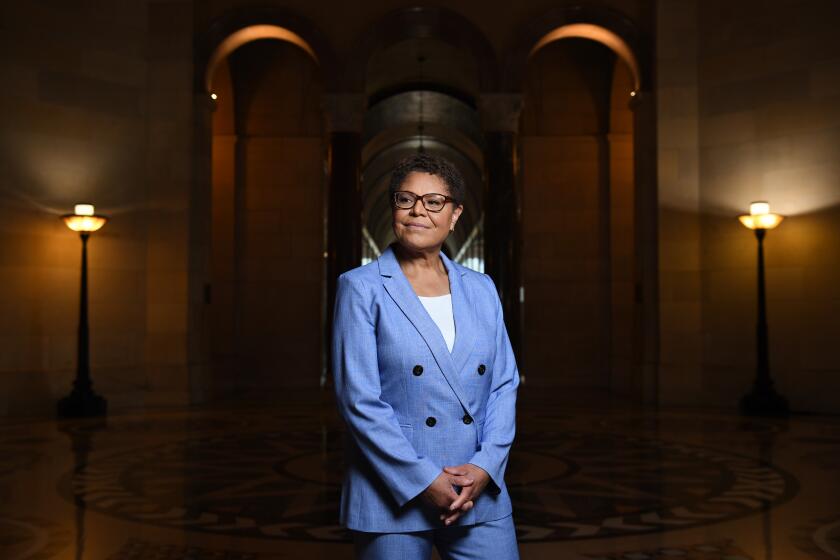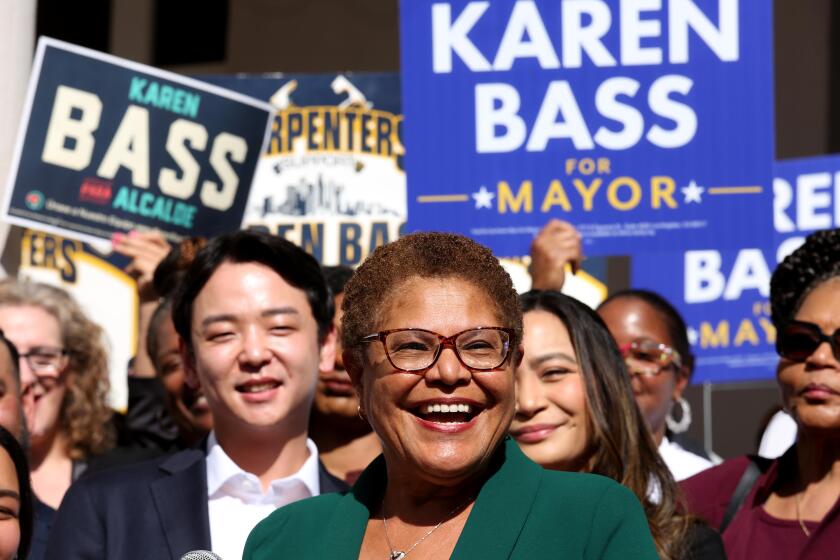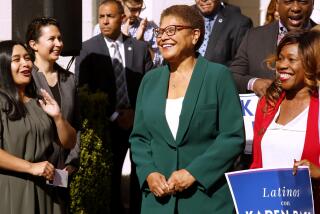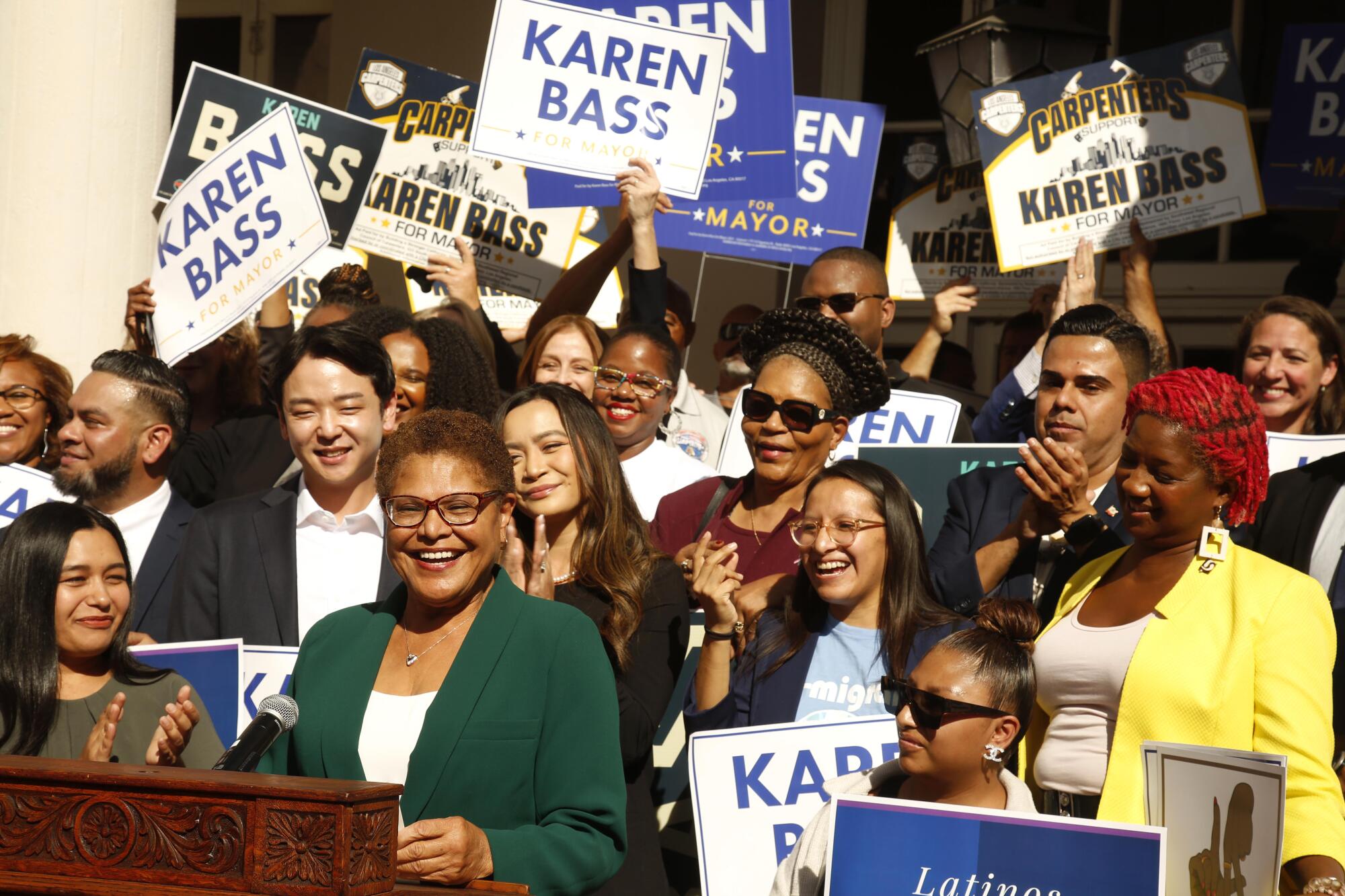
- Share via
Rep. Karen Bass was still getting used to the title “mayor-elect” Thursday as she stood in the sun-drenched courtyard of the Wilshire Ebell Theatre and invoked the Ebell women’s club which was founded in 1894.
This history-making nature of her ascension was not something she’d had time to contemplate, she said. She had been so busy running for the office, and now that the race had been called she was still coming to terms with the result.
“To be honest with you, I’m not processing that part of it,” Bass responded when radio host Tavis Smiley asked earlier Thursday what she made of her ceiling-breaking win. “I’m really focused on getting things up and running, because I only have three weeks and that’s a crazy amount of time to try to pull an administration together.”
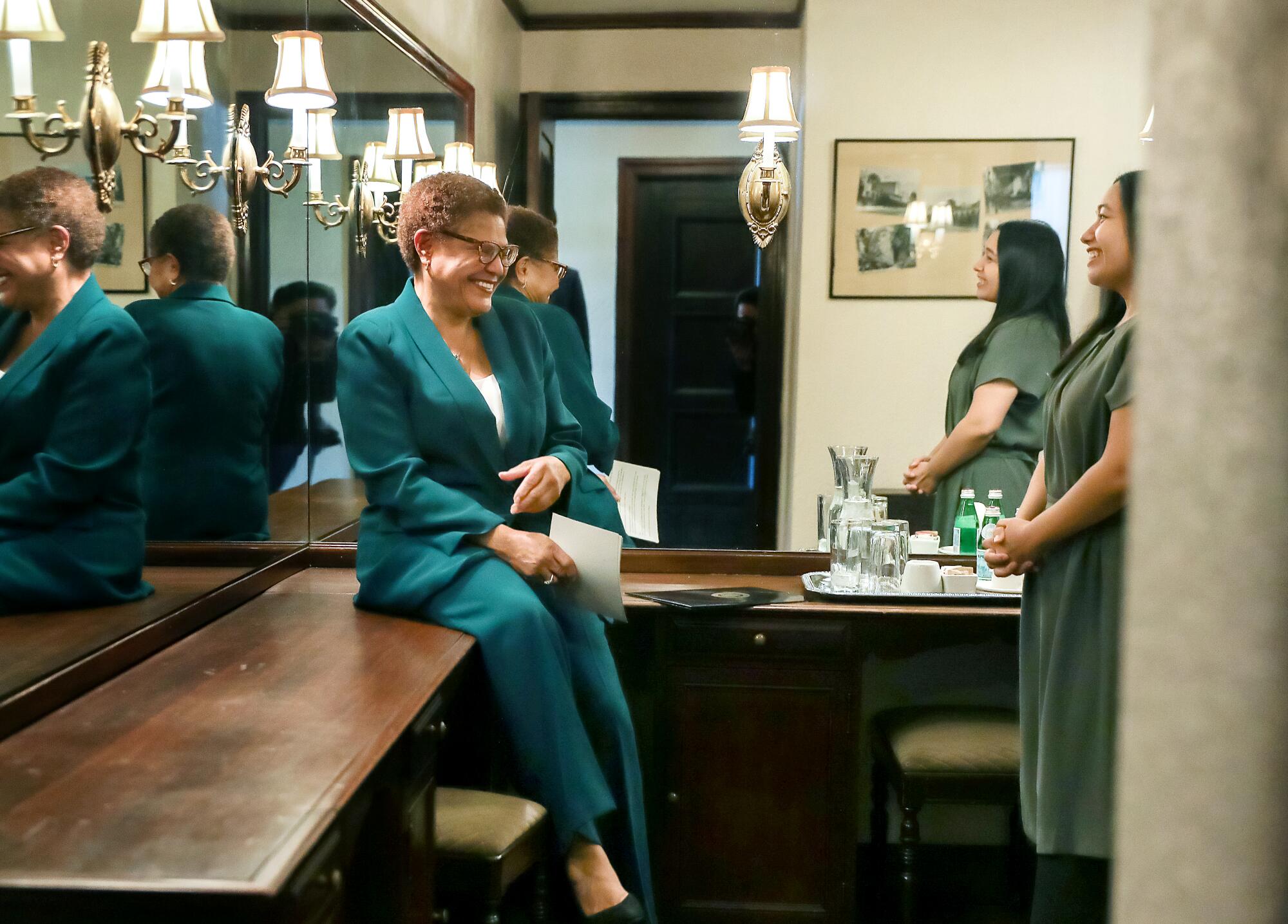
With her inauguration set for Dec. 12, she told reporters that she’d release more details about her transition in the coming days, but emphasized that it “won’t be a three-week transition team. It’ll be a transition team that goes into the administration after the swearing-in.”
Her first focus upon taking office would be large homeless encampments, she said, and seeking ways to identify them and help people who are living in them get into shelter or housing. The first step, she said, would be declaring a state of emergency, which had been a campaign promise of hers.
“We will identify very specific areas where we will get people housed and we will roll out a whole plan in order to do that,” she said.
Bass told the media and the crowd that “this was a tough campaign. It was a long campaign.” She first declared her intention to run for the office in September 2021.
It was evident she was relieved the campaign, which she likened to an “athletic competition,” was over, and was gracious about her opponent Rick Caruso, saying she “always admired his lifelong commitment to the people of Los Angeles.”
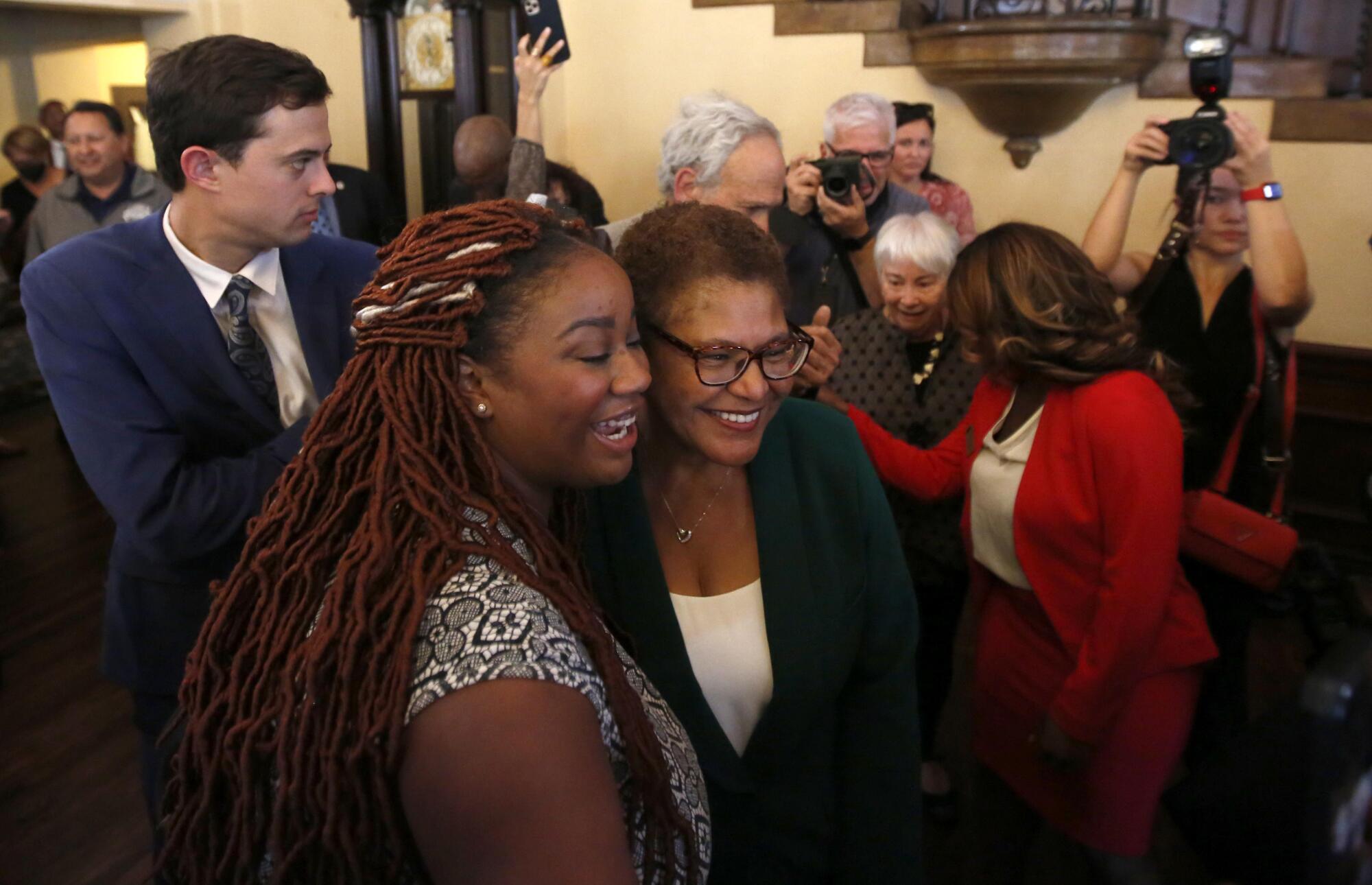
Addressing homelessness by expanding the supply of permanent or interim housing will be a vexing challenge — one that has beguiled her predecessor, Mayor Eric Garcetti, who has expanded both but only seen the homeless population grow. Voter anger on the subject was ever present on the campaign trail and helped fuel Caruso’s ascent.
During the campaign, Bass put forth a plan to house 17,000 people in her first year by wringing as much as possible out of the current system to expand both interim and permanent housing. That means, in part, building new shelter beds to accommodate about 1,000 people. Her plan also relies on expanded use of housing vouchers, the leasing and purchase of motels and hotels, and other approaches.
“I know that we won’t end homelessness in a year,” she told Smiley. “I also should be able to get rid of — meaning getting housed — most of the encampments. So my focus, especially in the first 100 days, is going to be to house a percentage of the encampments — the ones that are the most problematic — and then to prevent them from reemerging because encampments don’t happen overnight. It happens over time; you have one tent, and then you’ll have five tents.”
To accomplish this she’ll need to cooperate with a restive City Council — still recovering from a scandal that saw council President Nury Martinez resign — that will now have five new members. The transformation taking place also includes a more progressive shift, ideologically, with two new members who ran to the left of incumbents and beat them.
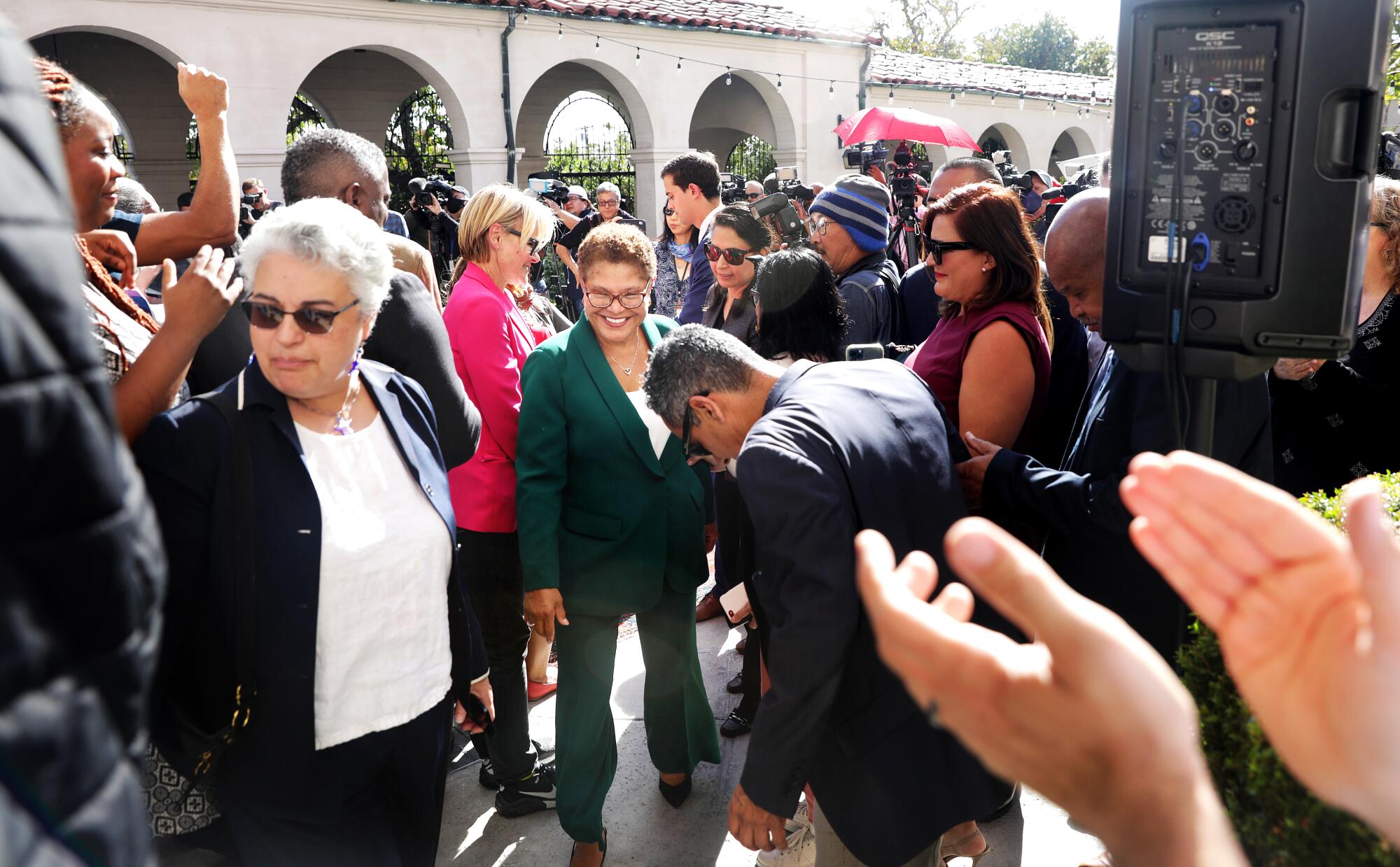
“I think we’re going to come in very bold, very aggressive because we’re coming in with that mandate,”Councilmember-elect Hugo Soto-Martinez told Spectrum News. The labor organizer beat Mitch O’Farrell in a tough race to represent a district that spans from Glassell Park to Hollywood.
“Voters are asking for it.”
Bass said she planned to go to City Hall on Thursday to meet with Garcetti and City Council President Paul Krekorian.
The congresswoman came up in the radical left flank of her party, but those days are long behind her. She has blended activism and pragmatism throughout her career, evolving from South L.A. community organizer to elected official known for coalition building in both Sacramento and Washington.
“I’m not sure whether Bass the community organizer or Bass the pragmatic leader is going to win out in in her relationship with the City Council,” said Ange-Marie Hancock Alfaro, chair of USC’s political science and international relations department.
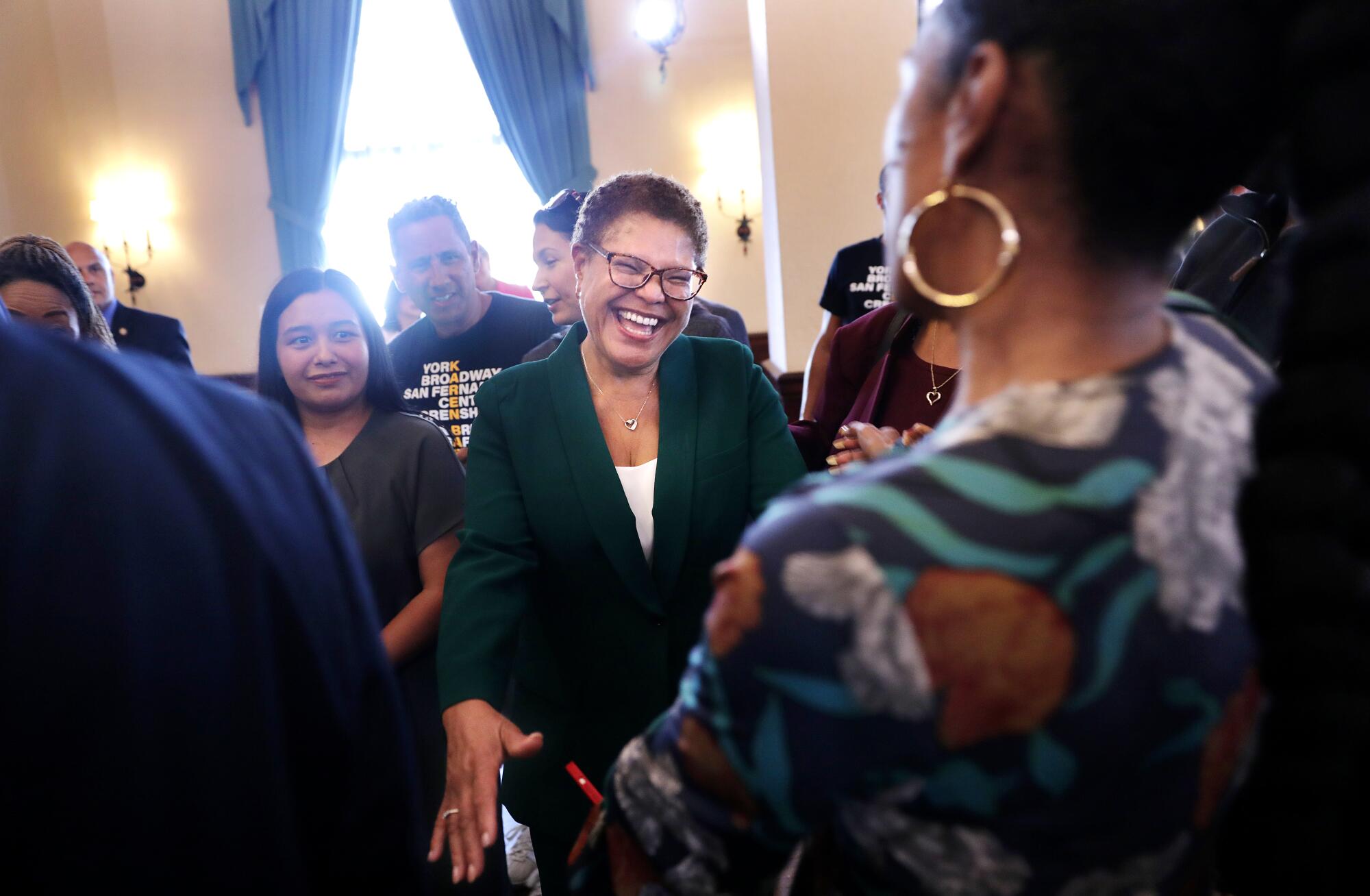
She was criticized frequently from the left in the mayoral primary, with even some longtime allies lamenting her more moderate stances on policing and homelessness enforcement.
Gina Viola, a virtually unknown far-left challenger, garnered nearly 7% of the vote in the June primary, amassing support from leftists disenchanted by the more mainstream candidates. Viola’s primary success was testament to the strength of that voting bloc, echoed in the electoral achievements of Councilmembers-elect Eunisses Hernandez and Soto-Martinez.
Bass’ leftmost critics were far less vocal during the general election campaign against Caruso, a former Republican.
But that pressure will almost certainly return as she takes office.
“If she looks at the outcome of the election, overall, what we see is progressivism winning in L.A. So it would make sense for her to listen to those of us who do organizing work,” said Black Lives Matter-Los Angeles co-founder Melina Abdullah. Abdullah, who has a decades-long relationship with Bass, had loudly criticized Bass’ public safety plan and ultimately endorsed Viola in the primary.
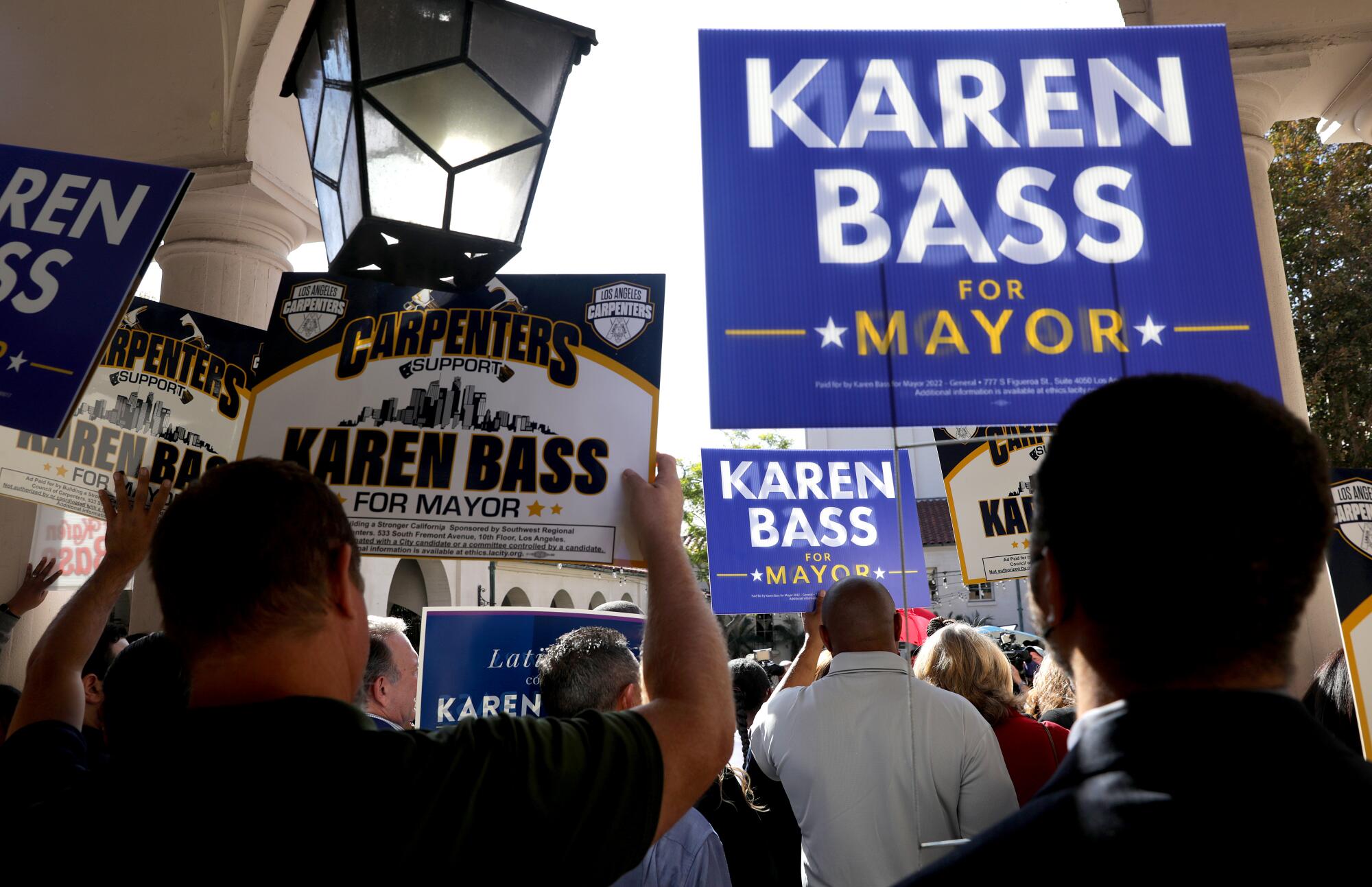
The plan is to hire more police officers so that the Los Angeles Police Department returns to its authorized strength of 9,700 officers, and Abdullah said she saw Bass “as a mayor that can be pushed and challenged to do progressive work much more readily than Caruso.”
Bass overcame Caruso’s enormous financial advantage. He spent more than $100 million of his own money.
Still, on this first day since the election was called, the focus for supporters hadn’t yet turned to these potential challenges. Standing nearby after Bass’ remarks, former Stockton Mayor Michael Tubbs, who now lives in Los Angeles and supported her campaign, said he was thrilled about her victory. He framed it through the eyes of his 1-year-old daughter, who was born after he left office.
“If I can’t be her first mayor, the only other person I’d want is Karen Bass,” he said.
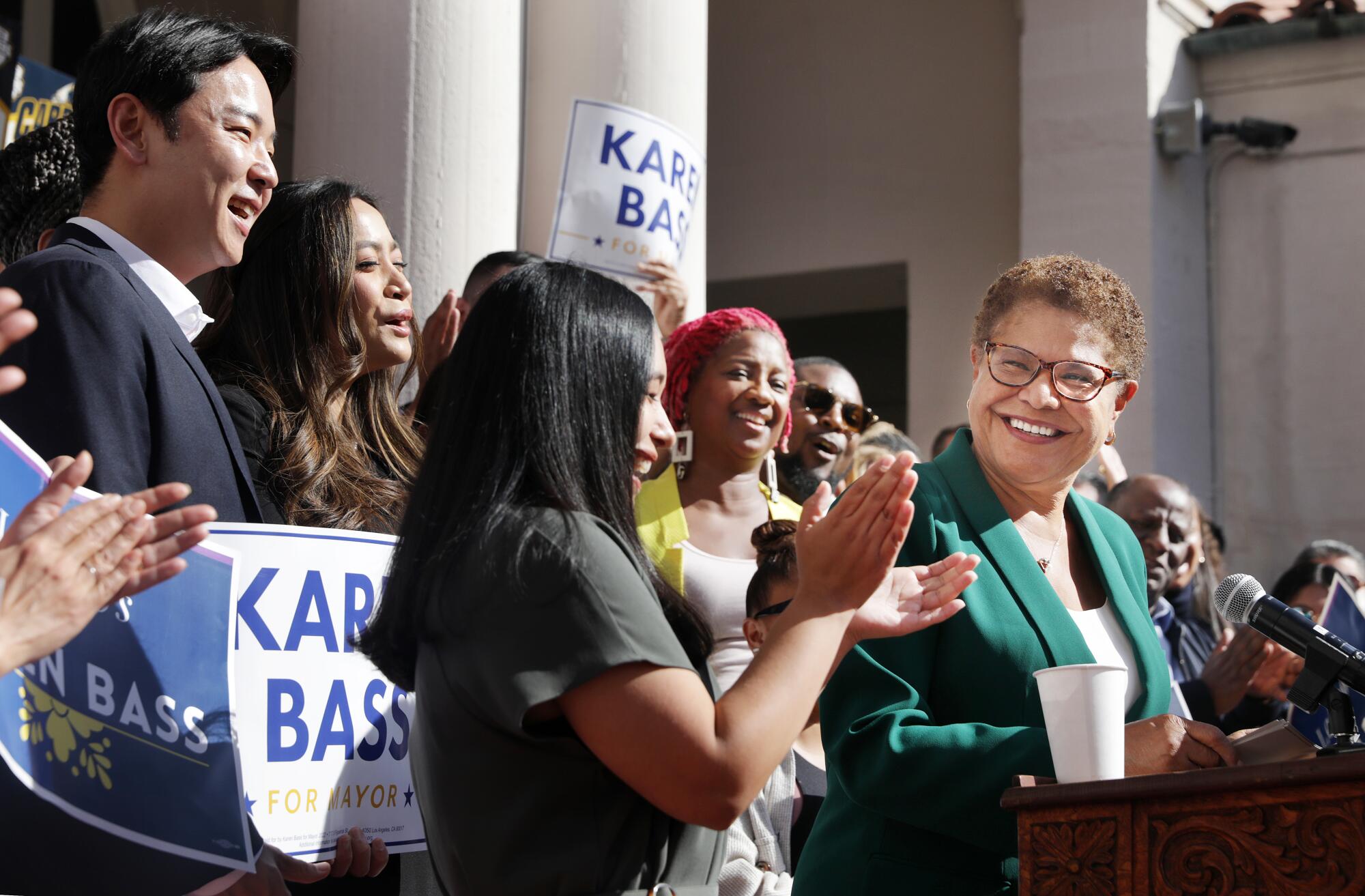
More to Read
Sign up for Essential California
The most important California stories and recommendations in your inbox every morning.
You may occasionally receive promotional content from the Los Angeles Times.
